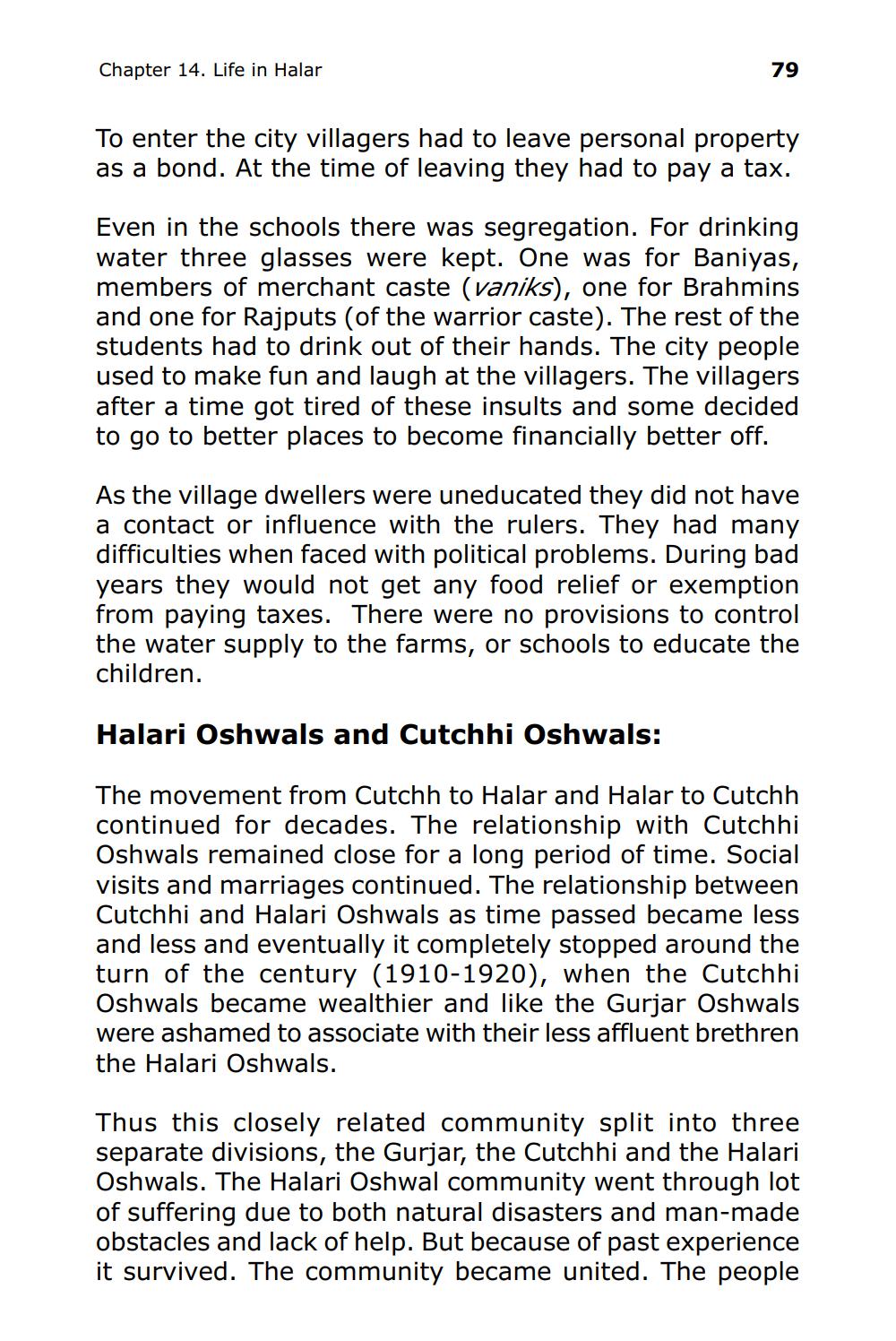________________
Chapter 14. Life in Halar
79
To enter the city villagers had to leave personal property as a bond. At the time of leaving they had to pay a tax.
Even in the schools there was segregation. For drinking water three glasses were kept. One was for Baniyas, members of merchant caste (vaniks), one for Brahmins and one for Rajputs (of the warrior caste). The rest of the students had to drink out of their hands. The city people used to make fun and laugh at the villagers. The villagers after a time got tired of these insults and some decided to go to better places to become financially better off.
As the village dwellers were uneducated they did not have a contact or influence with the rulers. They had many difficulties when faced with political problems. During bad years they would not get any food relief or exemption from paying taxes. There were no provisions to control the water supply to the farms, or schools to educate the children.
Halari Oshwals and Cutchhi Oshwals:
The movement from Cutchh to Halar and Halar to Cutchh continued for decades. The relationship with Cutchhi Oshwals remained close for a long period of time. Social visits and marriages continued. The relationship between Cutchhi and Halari Oshwals as time passed became less and less and eventually it completely stopped around the turn of the century (1910-1920), when the Cutchhi Oshwals became wealthier and like the Gurjar Oshwals were ashamed to associate with their less affluent brethren the Halari Oshwals.
Thus this closely related community split into three separate divisions, the Gurjar, the Cutchhi and the Halari Oshwals. The Halari Oshwal community went through lot of suffering due to both natural disasters and man-made obstacles and lack of help. But because of past experience it survived. The community became united. The people




